

(This post originally appeared in Labor’s Edge, the blog of the California Labor Federation)
Zombies are everywhere these days. They’re on popular TV shows. They’re in the movies. They’re in our nightmares. But what many Californians don’t know is that zombies are a primary reason of our ongoing budget crisis.
Yes, that’s right. We call them Zombie Loopholes, and they’re devouring our state’s budget.
Today, the California Labor Federation launched a new website to highlight the devastating impact that budget-killing corporate tax breaks are having on our state.ZombieLoopholes.com brings a number of wasteful corporate tax breaks that are bleeding our state of billions each year out of the shadows so the public is aware that they’re contributing to deep budget cuts to school funding, services for seniors and public safety.
With the state facing another budget crisis and more cuts to services we value,
» Read more about: Zombie Loopholes Are Eating California’s Budget Alive »
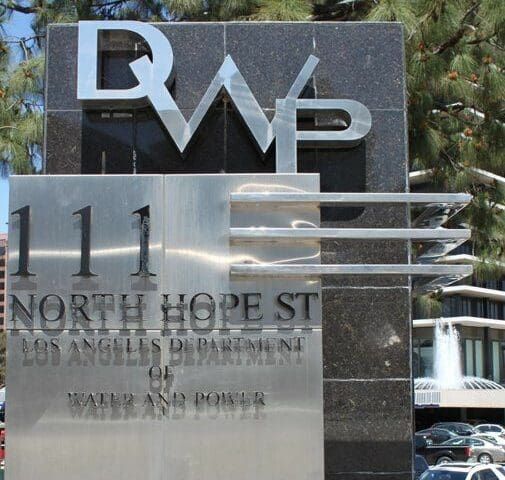
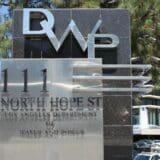
The Board of the Los Angeles Department of Water and Power took a huge step towards a greener, more efficient Los Angeles last Thursday. With a unanimous vote, the Board more than doubled LADWP’s investment in energy efficiency programs while also committing to sustaining that investment over the long term.
The Board set a goal of reducing energy consumption “at least 10%” with a soft target of 15% by 2020, pending the results of a new energy efficiency potential study. “These are significant increases and set LADWP on the path to be a leader in energy efficiency, allowing its customers to take advantage of this clean and cheap source of power,” NRDC’s Kristin Eberhard blogged the next day. “A robust energy efficiency budget can help create jobs and displace dirty coal in LADWP’s portfolio.” The vote came after over a year-and-a-half of organizing by a diverse coalition of environmentalists,
» Read more about: LADWP Board Votes to Dramatically Increase Energy Efficiency and Jobs Programs »


By Lenny Goldberg, California Tax Reform Association, and Roy Ulrich, Goldman School of Public Policy at U.C. Berkeley
(This article first appeared in the California Progress Report.)
Jerry Brown’s most recent budget proposal takes a meat ax to vital programs, including Medi-Cal and in home support services (IHHS). Why do we refer to them as “vital?” IHHS, for example, helps the disabled and seniors live safely in their own homes, thus obviating the need to place them in more costly outside facilities.
The governor’s plan represents the latest and worst in a spending cuts-only approach which California seems to specialize in. Reaping the benefits of this approach are the rich and powerful. The losers are those without high-priced lobbyists: the poor and the weak.
There are several potential revenue sources the rich and powerful have been able to avoid while other states,


Here’s a fun fact you probably didn’t know: Arizona’s notorious SB 1070 law was born in a Walmart.
Yes, the inspiration for the most draconian anti-immigrant legislation in the nation, a measure that permits law enforcement to ask about immigration status, one that swings the door wide open for racial profiling—SB 1070—reportedly sprang from a moment of inspiration at a Walmart checkstand.
This origins story is brought to you courtesy of the Ministry of Citizenship, a faux MinuteMan-style group that purports to be a fan of the legislation. According to the Ministry, it happened this way: state representative Russell Pearce, the measure’s sponsor, “hatched the idea for SB 1070 late one night while waiting in the checkout line at Walmart.”
“Here I was just trying to buy some Cheetos and cat litter, and the crowds were just horrendous,” the Ministry quotes Pearce as saying.
» Read more about: Anti-Immigrant Legislation has Walmart Roots »
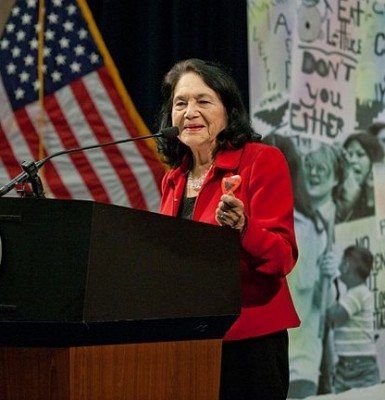
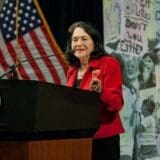
Dolores Huerta, co-founder of the United Farm Workers and long-time activist who has lent her strength to countless social and economic justice fights, received the Presidential Medal of Freedom from President Obama on Tuesday.
“Dolores was very gracious when I told her I had stolen her slogan, ‘Si, se puede.’ Yes, we can,” Obama joked during the ceremony. “Knowing her, I’m pleased she let me off easy, because Dolores does not play.”
He explained that throughout Huerta’s work, “She has fought to give more people a seat at the table. ‘Don’t wait to be invited,’ she says, ‘Step in there.’”
“I was humbled, thrilled, and surprised. I never expected to be nominated,” Huerta, 82, told the Daily Beast about the honor. She said the medal highlights the power of “organizing at the grassroots level,” and “how important that is in keeping our democracy alive.”
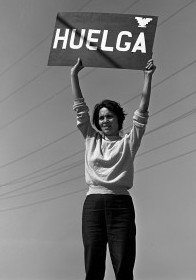
That activism,
» Read more about: Dolores Huerta Honored with Presidential Medal of Freedom »
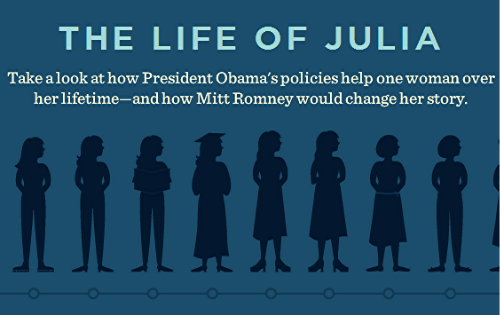
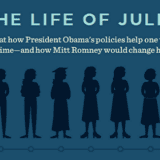
David Brooks, the usually buttoned-down columnist for the New York Times, succumbed recently to a peculiar eruption of Id. Like many of his fellow conservatives, he’s in a snit about The Life of Julia, an Obama campaign slideshow that portrays the title character benefiting from federal programs like Head Start and Social Security. (See my previous article here.) Brooks casts Julia as a “vision of government as national Sugar Daddy, delivering free money and goodies up and down the life cycle.” My attention was riveted by that term, “Sugar Daddy,” which doesn’t just refer, say, to a rich uncle, but to an older man who showers gifts on a young woman, often, by implication, in return for sexual favors. It’s difficult to imagine Brooks taking a detour into so dark a recess of the imagination if it had been The Life of James.


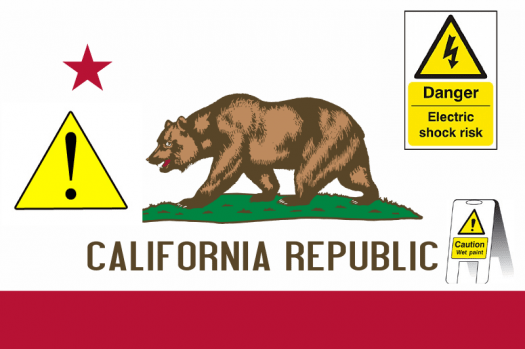
(The following news announcement was issued by the Harvard Business School.)
Research published today in Science sheds light on a hot-button political issue: the role and effectiveness of government regulation. Does it kill jobs or protect the public?
The new study, co-authored by Harvard Business School Professor Michael Toffel, Professor David Levine of the Haas School of Business at the University of California, Berkeley, and Boston University doctoral student Matthew Johnson, examines workplace safety inspections conducted by California’s Division of Occupational Safety and Health (Cal/OSHA). The authors carried out the first evaluation of a “clinical trial” of the state’s mandated randomized inspections to discern their effect on both worker safety and companies’ bottom lines.
The results overturn conventional wisdom: Workplace inspections do reduce on-the-job injuries and their associated costs, and the researchers could not detect any harm to companies’


 Economic development in Arizona is now by corporations for corporations and the public is left to in the dark as to how its tax dollars are spent. Last year the state’s Department of Commerce was replaced by the public-private Arizona Commerce Authority (ACA), steered by a board of mostly corporate representatives. The ACA’s website picture shows the board of directors as Governor Jan Brewer with 18 corporate titans. The bottom of the page mentions a smaller number of “ex-officio” public officials associated with the board who aren’t named or pictured.
Economic development in Arizona is now by corporations for corporations and the public is left to in the dark as to how its tax dollars are spent. Last year the state’s Department of Commerce was replaced by the public-private Arizona Commerce Authority (ACA), steered by a board of mostly corporate representatives. The ACA’s website picture shows the board of directors as Governor Jan Brewer with 18 corporate titans. The bottom of the page mentions a smaller number of “ex-officio” public officials associated with the board who aren’t named or pictured.
Though not listed on the website, the ACA also depends on corporate donations for its office space, its corporate-sized CEO salary, and much of its operating budget. The arrangement would pose unsettling conflict-of-interest problems for any authority that performs a public function.
But this isn’t just any agency. Its task is to try boosting the state economy by handing out taxpayer-financed subsidies to individual companies of its choosing.
» Read more about: Arizona’s Taxes Help Corporations Subsidize Themselves »


 (The following post appeared yesterday on California Progress Report; a slightly shorter version was first posted on the Consumer Federation of California‘s Web site.)
(The following post appeared yesterday on California Progress Report; a slightly shorter version was first posted on the Consumer Federation of California‘s Web site.)
By Richard Holober
Californians are exposed to dangerous levels of toxic chemicals in our homes, thanks to a 37 year old state furniture regulation. While the regulation never served its intended goal of reducing fires in our homes, its legacy of toxic harm lives on.
Click here to ask the Governor to take toxics out of our furniture.
In May 2012, a remarkable investigative series in the Chicago Tribune exposed decades of lies, coercion and influence peddling by flame retardant manufacturers. The report describes how a chemical industry front group paid a medical school professor to travel to Sacramento to testify on two separate occasions before the state legislature.
» Read more about: Getting the Poison Out of Our Furniture »


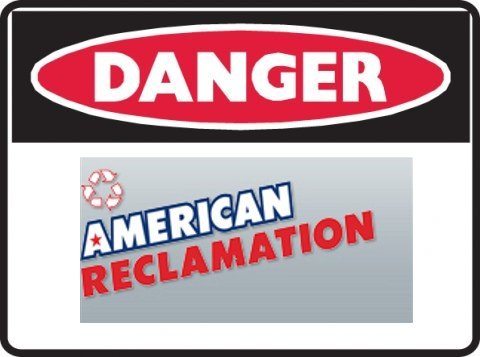 Solid waste company American Reclamation, Inc. which for months has come under heavy fire over alleged safety violations and poor treatment of its employees, was cited by Cal/OSHA this week following an investigation by the agency into conditions at its Atwater recycling facility.
Solid waste company American Reclamation, Inc. which for months has come under heavy fire over alleged safety violations and poor treatment of its employees, was cited by Cal/OSHA this week following an investigation by the agency into conditions at its Atwater recycling facility.
Cal/OSHA issued 36 citations to the company, its recycling subsidiary, South Coast Fibers, Inc. and their staffing agency totaling nearly $40,000 in penalties.
The investigation stemmed from complaints filed by Karla Campos, a 25-year-old Glendale resident and former American Reclamation worker. “American Reclamation treats us worse than the trash we sort,” said Campos, who has charged that she was fired by the company after falling on trash and breaking her tailbone.
The citations come as the L.A. City Council considers adopting a new exclusive franchise system for commercial and multifamily waste. The system would mitigate many of the problems found in the current system —
» Read more about: Cal/OSHA Cites American Reclamation for Unsafe Conditions »